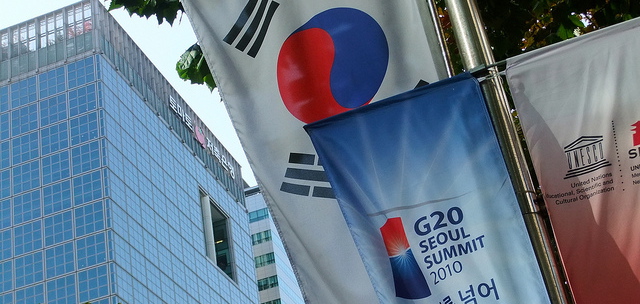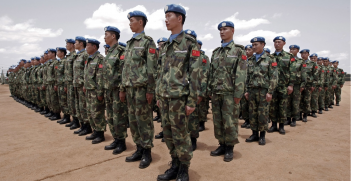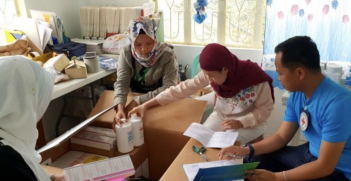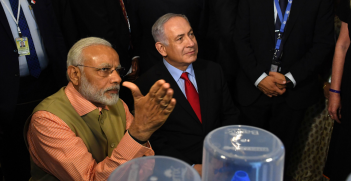A Push For Progression

G20’s transition to a broad political summit could benefit by introducing parallel Ministers meetings, establishing a secretariat and adopting institutional innovation, proposes South Korea’s Lee Dong-hwi.
The eight summits convened since 2008 have consolidated the G20’s role as an important forum for dealing with pending global economic issues. It receives criticism, however, for failing to fully realise the much needed transition from a crisis-management body to a steering committee, and now faces a choice between evolution or stagnation …
An absence of leadership
The G20 was criticised for its failure to efficiently deal with the financial crisis which began in Greece as a result of conflicting interests among the EU member states. Another variable constraining the G20 leadership is related to the US – the combined challenges of continued quantitative easing policies and fiscal deficit have made it difficult for the States to take the initiative in assuming a leadership role in the global economy. The lack of leadership is also partially attributable to the situation in emerging markets such as China and Brazil, where slow progress in political and economic reforms, as well as increasing difficulties in their domestic economies, have kept them too preoccupied to discuss economic support elsewhere.
Inadequacy of agenda
While the agenda selection remains focused on economic and financial issues, and is still deeply influenced by the G7 countries, the leading countries are primarily concerned with their own internal economic issues rather than the global economy. Thus, the capacity to resolve the world’s problems are undermined. Likewise, at times, the setting of the agenda too heavily reflects the host nation’s interests, rather than the common agreement of the G20 countries after sincere contemplation on the institution’s future. Another problem is that the host’s additional agenda items tend to be overly ambitious, perhaps in the hope of leaving a lasting legacy on the process.
Lack of efficiency
Some observers note that because the main agenda items of the G20 are bogged down in technical issues pertaining to the economy and finance, the usefulness of the G20 as a summit can be limited. The root cause of such a complex situation derives from the fact that the G20 Summit was first created by expanding the Finance Ministers meeting in the effort to quickly overcome the financial crisis of 2008. A side effect being, the string of similar forums resulted in “summit fatigue”.
That said, if the fundamental nature of the G20 ought to be adjusted from being an economy-oriented technical consultative body to a broader political structure as befits a summit gathering, then a proposal can be made to establish the Foreign Ministers Meeting in parallel with the Finance Ministers meeting – as in the case of the G8.
Thus, additional tasks required for the G20’s future development would be to find out how to enhance operational efficiency through a variety of efforts, including the introduction of parallel Ministers meetings, the establishment of a secretariat and work on institutional innovation.
Lee Dong-hwi is Professor at the Institute of Foreign Affairs and National Security, Ministry of Foreign Affairs.
This is an extract from G20: Words into Action Brisbane 2014, to be published by Faircount Media in association with the Australian Institute of International Affairs in October 2014.





